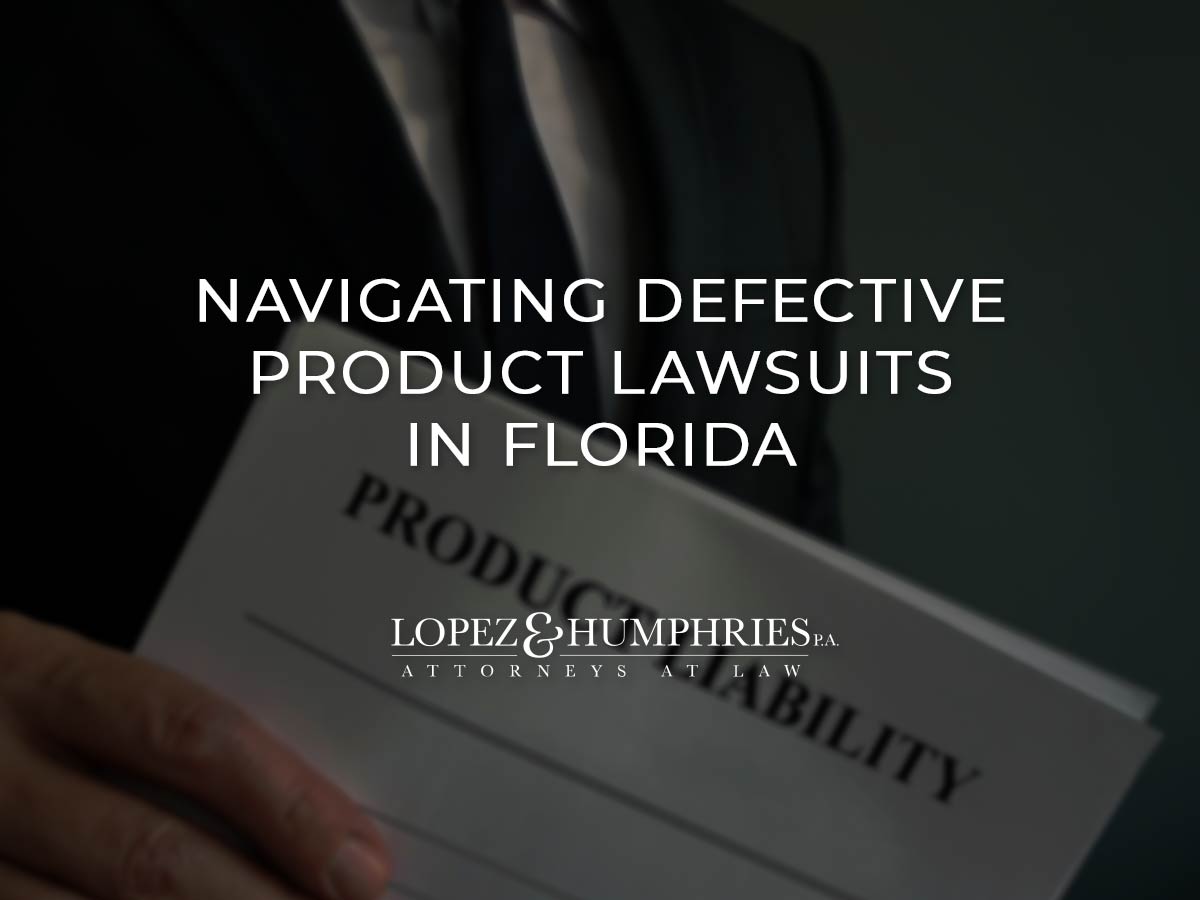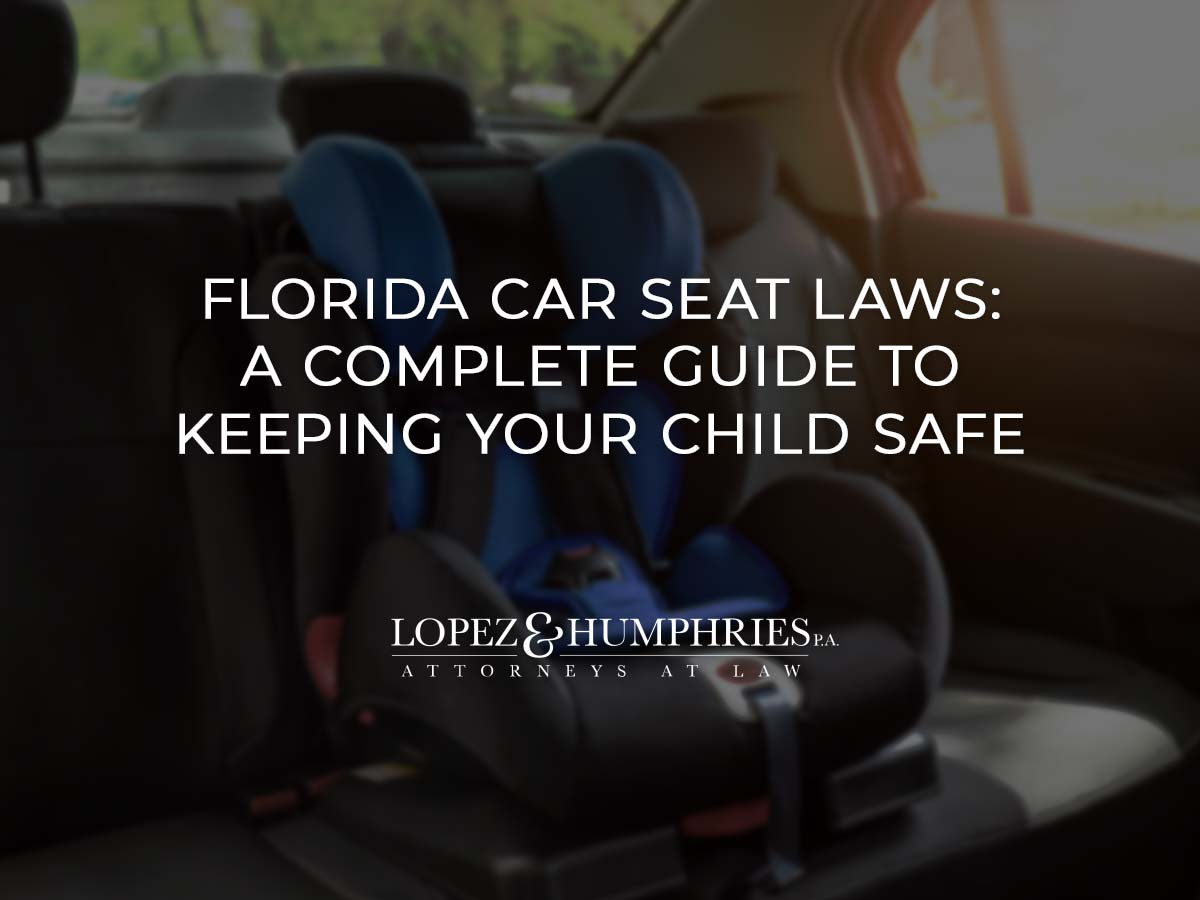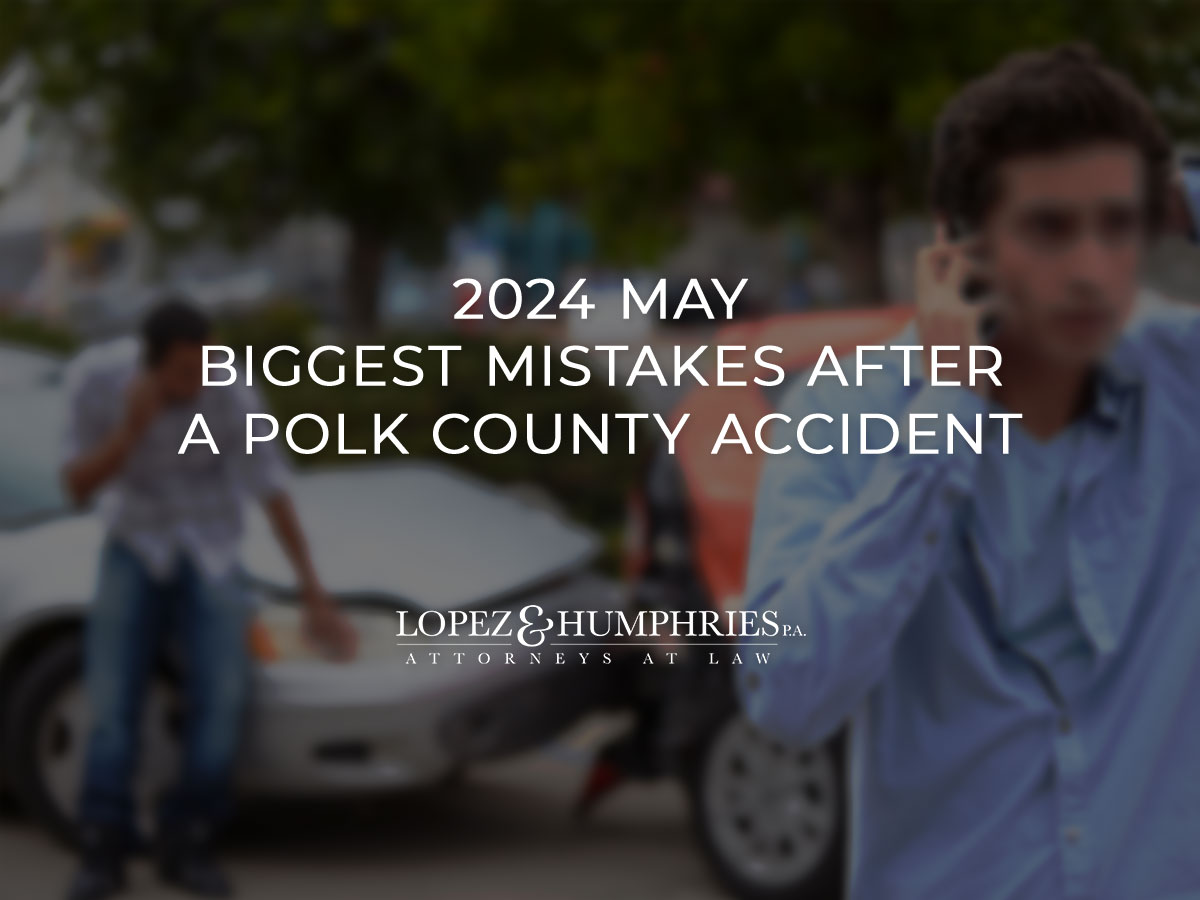In the bustling city of Lakeland, the alarming rate of truck accidents has become a significant concern. These incidents often result in severe consequences, impacting not only individuals but also the community at large.
López & Humphries, PA, understands the importance of addressing these issues. Understanding the common causes of these tragic events is pivotal to devising effective preventive measures and enhancing road safety for everyone.
By exploring the common causes of truck accidents in Lakeland, we can contribute to a safer future on our roads and reduce the devastating impact these accidents have on lives and property.
Discussing Types of Common Truck Accidents
Exploring the various types of common truck accidents is essential for understanding the unique challenges of large commercial vehicles. In this section, we’ll delve into different categories of truck accidents, shedding light on their causes, consequences, and preventive measures.
-
Rear-End Collisions
-
- Causes: Sudden braking, distracted driving.
- Consequences: Whiplash, property damage.
- Preventive Measures: Maintain safe following distance and avoid distractions.
-
Jackknife Accidents
-
- Causes: Slippery roads, braking issues.
- Consequences: Blocking multiple lanes; severe damage.
- Preventive Measures: Ensure proper braking and road condition awareness.
-
Underride Accidents
-
- Causes: High speeds, sudden stops.
- Consequences: Severe injuries and fatalities.
- Preventive Measures: Stay out of a truck’s blind spots; maintain safe distances.
-
Rollover Accidents
-
- Causes: Excessive speeds and unbalanced loads.
- Consequences: Vehicle rollovers, cargo spills.
- Preventive Measures: Adhere to speed limits and load cargo evenly.
-
Blind Spot Collisions
-
- Causes: Driver unawareness, sudden lane changes.
- Consequences: Side collisions and vehicle damage.
- Preventive Measures: Avoid lingering in truck blind spots.
-
Tire Blowouts
-
- Causes: Tire defects, overloading.
- Consequences: Loss of control, accidents.
- Preventive Measures: Regular tire maintenance; load within weight limits.
-
Wide Turns
-
- Causes: Lack of space, driver errors.
- Consequences: Collisions during turns.
- Preventive Measures: Stay clear of turning trucks; be patient.
-
Cargo Spills
-
- Causes: Poor cargo securing.
- Consequences: Road hazards, accidents.
- Preventive Measures: Properly secure cargo; routine checks.
Understanding these common types of truck accidents can help drivers and authorities implement safety measures to reduce the risk of such incidents on the road.
Exploring Causes Behind Truck Accidents
Trucking accidents in Lakeland are a serious concern. Let’s delve into some of the common causes.
Driver Fatigue: A Leading Cause
Many truck accidents happen because drivers are too tired. They spend long hours on the road, often without enough rest. This leads to fatigue, which can affect their ability to drive safely.
- For instance, a truck driver who has been driving for 14 hours straight is more likely to make mistakes.
- In 2019, 13% of commercial truck drivers were considered fatigued at the time of their crash.
These stats show that driver fatigue is a significant factor in many truck accidents.
Distracted Driving: A Silent Killer
Another cause of trucking accidents is distracted driving. This happens when drivers take their eyes off the road or their hands off the wheel.
- Texting while driving is one common form of distraction.
- Adjusting the radio or GPS is another form of distraction.
In 2018 alone, distracted driving was reported in about 15% of fatal crashes involving trucks. It’s clear that this issue contributes heavily to the number of truck crashes annually.
Alcohol and Drug Use: Deadly Risks
Alcohol and drug use among truck drivers also contribute to many tanker truck accidents. Despite strict regulations against it, some drivers still engage in these risky behaviors.
- For example, a study found that over 20% of truck drivers admitted they had used alcohol while on duty.
- Another report showed that around 30% confessed to using amphetamines to stay awake during long drives.
Such practices not only endanger the lives of these tanker truck drivers but also everyone else on the road.
The Role of Faulty Parts in Accidents
Truck accidents in Lakeland often arise from faulty parts. Let’s delve into how brake failure, defective tires, and malfunctioning lights contribute to these mishaps.
Brake Failure Triggers Accidents
Brake failure is a major culprit behind truck accidents. When brakes fail, trucks can’t stop or slow down in time, leading to fatal injuries.
For instance, if a truck’s braking system fails while descending a steep road, it could lead to a catastrophic crash. In 2018 alone, brake failures accounted for 29% of all large truck crashes in the U.S., according to the Federal Motor Carrier Safety Administration (FMCSA).
Defective Tires Cause Havoc
Next up are defective tires or poor tire maintenance. These issues can result in serious accidents and damage. A blowout could cause a driver to lose control and collide with other vehicles.
The National Highway Traffic Safety Administration (NHTSA) reports that tire-related crashes result in about 200 fatalities annually.
Malfunctioning Lights Lead To Collisions
These problems can cause blind spot collisions and other types of crashes. If a truck’s turn signal doesn’t work properly, other drivers won’t know when it plans to change lanes or turn.
Similarly, broken tail lights make it hard for following drivers to gauge distance at night or during bad weather conditions.
Negligence and Poor Road Maintenance Factors
Negligence and poor road maintenance factors are pivotal aspects when it comes to understanding the causes of accidents and road-related issues. These factors encompass a range of elements, including inadequate infrastructure upkeep, irresponsible behavior, and a lack of preventive measures.
Driver Negligence: A Major Contributor
You know how people say “speed kills”? Well, they aren’t lying. When truck drivers start speeding, it’s like a disaster waiting to happen.
Imagine an 18-wheeler barreling down the road at top speed – scary, right? This kind of negligence leads to severe property damage, economic losses, and even the loss of life.
But speeding isn’t the only issue here. Fatigue is another factor. Truckers often push themselves too hard, trying to meet tight deadlines. But when you’re tired, your reaction time slows down, and accidents can happen in a snap.
The Impact of Poor Road Conditions on Safety
Have you ever tried driving on a road that’s more pothole than pavement? It’s no picnic for truck drivers, either. Poor road conditions are a significant cause of truck accidents in Lakeland.
They can lead to a loss of control and nasty crashes. Maintenance is another crucial factor here. If lanes aren’t marked or there are lighting issues, it increases the risk for everyone on the road.
Inadequate Signage: An Overlooked Hazard
Have you ever been driving along and suddenly realized you missed your exit because the sign was too small or hidden behind trees? Now imagine that happening while you’re driving a massive truck! Inadequate signage can lead to clarity on the road, which often results in accidents.
For instance, construction zones are usually marked with signs, but sometimes, these need to be clearer or placed well in advance. This can cause sudden lane changes or truck braking, leading to side-swipes or rear-end collisions.
Overloading Dangers and Prevention Measures
Truck accidents in Lakeland are often linked to overloading. Improper load distribution creates a hazardous situation, making it crucial to enforce weight limits for safety.
The Risky Business of Overloading Trucks
Overloading trucks is like playing with fire. It significantly increases the risk of accidents. When a car carries more load than it should, control becomes difficult.
Think about it this way: you’re trying to carry four grocery bags in each hand when you can comfortably handle only two. You’ll likely stumble or drop something, right? That’s precisely what happens with overloaded trucks.
- Safety hazard: An overloaded truck is a danger on wheels. It’s harder to steer and takes longer to stop.
- Damage risk: Overloading puts undue stress on the vehicle’s components, leading to faster wear and tear.
- Hazardous materials: If the overload includes hazardous materials, an accident could lead to severe environmental damage.
The Ripple Effect of Poor Load Distribution
Poor load distribution is another critical player in truck accidents. A wrongly placed load can make the vehicle unstable, increasing the chance of tipping over during turns or sudden stops.
- Balance issues: If the load isn’t evenly spread out, it can cause balance problems for the truck.
- Control difficulties: The driver may need help steering or braking if the weight is distributed adequately across all axles.
Importance of Weight Limit Enforcement
Enforcing weight limits isn’t just about avoiding fines; it’s about preventing accidents, too. Every extra pound added beyond capacity makes control harder and risks higher.
Here are some preventive measures:
- Regular checks: Ensure that vehicles undergo regular checks for any signs of overloading.
- Training drivers: Drivers should be trained on proper loading techniques and weight limits.
- Monitoring loads: Use technology such as weigh stations or onboard weighing systems to monitor loads in real-time.
To sum it up, overloading and improper load distribution are significant causes of truck accidents in Lakeland. By enforcing weight limits and ensuring proper load placement, we can reduce these risks and make our roads safer.
Legal Assistance for Truck Accident Victims
After a truck accident in Lakeland, victims often find themselves in a whirlwind of confusion and stress. Seeking legal counsel from experienced Lakeland truck accident attorneys is crucial.
Truck accidents can lead to severe injuries. Medical bills pile up quickly, and lost wages add another layer of financial strain. A free consultation with a lawyer can help victims understand their rights and potential avenues for compensation.
Lawyers’ Role in Securing Compensation
A truck accident lawyer doesn’t just file paperwork. They’re your advocates, fighting tooth and nail to ensure you get a fair settlement.
Attorneys handle negotiations with insurance companies, who often try to minimize payouts. They also gather evidence to strengthen your case. This could include police reports, witness statements, or expert testimony about the severity of your injuries.
In some cases, lawyers may even need to take the fight to court if the insurance company refuses a fair settlement offer.
Understanding Local Traffic Laws
Knowing local traffic laws is essential when pursuing a lawsuit after a truck accident in Lakeland. Your attorney will know these regulations and how they might impact your case.
For instance, Florida follows a “no-fault” auto insurance law. This means that regardless of who caused the accident, each driver’s insurance covers their medical expenses up to a specific limit.
However, if the victim’s injuries are severe enough (a determination made based on specific criteria), they may step outside this no-fault system and sue the at-fault party directly for additional compensation.
Preventing Truck Accidents in Lakeland
Truck accidents in Lakeland, as we’ve seen, can be attributed to various factors. These range from common types like overloading and faulty parts to less obvious ones like negligence and poor road maintenance. Understanding these causes is crucial for prevention measures and legal proceedings following an accident.
It’s essential that truck drivers, companies, and all road users take active steps to prevent these incidents. This includes regular vehicle inspections, adhering to load limits, and advocating for better road maintenance.
If you or a loved one has been involved in a truck accident in Lakeland, seeking legal assistance from López & Humphries, PA, can help you navigate the complexities of compensation claims. Contact us today for a free consultation!
FAQs
-
What are some common causes of truck accidents in Lakeland?
Common causes include truck overloading, faulty parts, driver negligence, and poor road maintenance, among others.
-
How can I prevent being involved in a truck accident?
Regular vehicle inspections, adhering to load limits, and safe driving practices are ways to avoid being involved in a truck accident.
-
What should I do if I’m involved in a truck accident?
If you’re involved in a truck accident, it’s vital to seek immediate medical attention, even if injuries aren’t apparent. Then, contact law enforcement authorities to report the incident and consider seeking legal advice for any compensation claims.
-
Why is legal assistance critical after a truck accident?
Legal assistance is crucial after a truck accident because it helps victims understand their rights and navigate the complex process of filing compensation claims.
-
How does poor road maintenance contribute to truck accidents?
Poorly maintained roads may have potholes or lack clear signage, which could lead to accidents, especially when combined with other factors such as overloading or driver negligence.










